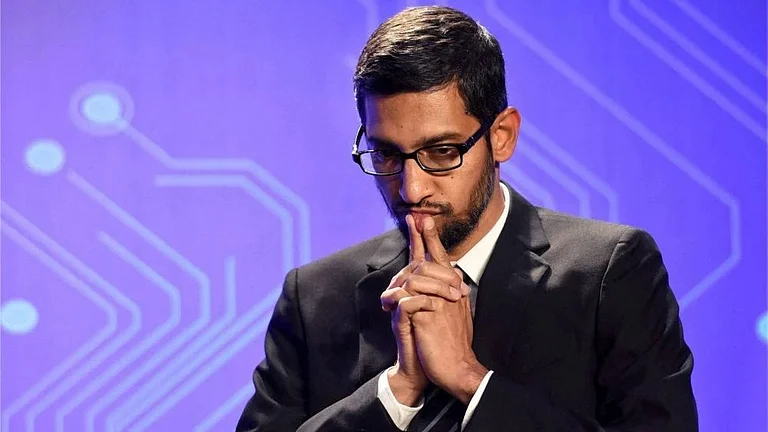BYJU’s insolvency saga, Unacademy’s possible acquisition, and the silent shutdown of more than 2,000 educational ventures --- India’s edtech dream, once the darling of new-age learning models is battling its darkest hour. But every cloud has a silver lining.
For edtech sector, PhysicsWallah seems to paint a positive picture of educational start-ups amidst all the gloom and doom. And the visionary behind PW is Alakh Pandey --- the man who didn’t even completed his graduation is now popular among students for providing affordable and accessible education.
But Pandey is not the sole founder of the Noida-based company. Prateek Maheshwari is also the cofounder who shares the same vision of affordable and accessible quality education.
“I love teaching. I am not a businessman. I had never thought of starting teaching as a business. But my cofounder, Prateek, has a good experience in managing start-ups. He even had a food start-up in Bengaluru earlier,” Pandey had said in a virtual conversation with a media organisation.
Together, they have built a start-up backed by various investors, including Westbridge Capital, Lightspeed Venture Partners, GSV Ventures, and Hornbill Capital. In September 2024, it secured $210 million in a funding round led by Hornbill Capital at a 2.5 times higher valuation of $2.8 billion.
The edtech unicorn is planning to raise nearly $500-$600 million via initial public offering (IPO) at a valuation of $5 billion this year. PhysicsWallah has recently filed draft IPO papers with the capital markets regulator Sebi (Securities and Exchange Board of India) through a confidential pre-filing route. It has also picked Kotak Mahindra Capital, Axis Bank, JP Morgan, and Goldman Sachs to launch its IPO. If the listing plans materialise, the company could become India’s first edtech platform to debut on the domestic bourses.
Besides IPO, the start-up is also making other strategic moves to strengthen its position in Indian edtech sector, that is, acquisition. Reportedly, PW is in talks to acquire the UPSC and state commissions’ preparatory platform named ‘Drishti IAS’ founded by Dr Vikas Divyakirti for Rs 2,500 crore.
This is where PhysicsWallah stands today—but what did it take for Alakh Pandey to build it from the ground up? Let's dive deep into his journey,
A College Dropout Turned PhysicsWallah
Childhood was not a walk in the park for Pandey. A ‘below average’ kid whose weakest point was Mathematics in academic turned responsible when everything was falling through the cracks for his family --- father’s only job, house, and scooter. And to make end meets for his loved ones, the whole family moved into a slum-like rental and his father started selling oil on bicycle. It was a turning point for him!
While he could deeply feel the difference in status, the eight-standard kid channeled his determination in his own studies and tutored younger students. At that point, Alakh realised that he was a teacher at heart. The struggles didn’t end here—unpaid dues, empty pockets, missed celebrations, and more! But Alakh stood tall. He continued taking tuition throughout his higher education in Uttar Pradesh’s Prayagraj, his birthplace.
Simultaneously, he lost interest in the traditional college education. And he dropped college in third year to become a full time tutor. His family resisted but Alakh held on to his vision and started teaching Physics at various coaching classes. It seems like he must had a smooth journey from here on. But no, his professional life was like a ride on a bumpy road.
His aim was higher. In 2016, he started his own YouTube channel called PhysicsWallah. Then, in 2020, Pandey finally launched his own Android app to offer live classes and registered PhysicsWallah as a private limited company. Within just a few days, the app had more than 35,000 users.
The online learning trend triggered by the Covid-19 pandemic had a lasting impact on India’s edtech ventures. It became a new normal or you can say a necessity for both students and entrepreneurs to have presence online. However, as the shadows of the Covid-19 began to lift, students longed for a return to the familiarity of crowded classrooms.
Hence, in 2020, Pandey and Maheshwari also launched their first offline centre, PW Vidyapeeth in Kota, Rajasthan. Today, the learning venture has offline coaching classes in more than 100 cities across the country. It also has over 31 million subscribers across 61 channels and 180 offline centres.
Besides online classes, the edtech start-up also provides study materials for students preparing for JEET, NEET, and other competitive exams. What started as a necessity to earn survival has turned out to be a billion-dollar educational empire.
Alakh Pandey – Man Who Rejected Rs 75 Crore Job Offer
A few years ago, an edtech platform reportedly offered a whopping Rs 75 crore per annum to hire Pandey. During a podcast, he refused to name the quote that made the offer. At that time, he only started his own YouTube channel named ‘PhysicsWallah, to grow leaps and bounds in popularity.
Hello baccho! Kya haal chal? Badhiya ekdum! This signature greeting became the heartbeat of his Physics classes everywhere. And to everyone’s surprise, Pandey turned down the offer because he had larger aspirations to build his own educational empire.
His classes filled with earthy sense of humour, shayaris, anecdotes, and the ability to connect with students on real-life problems, have become his signature teaching style. More interestingly, his pedagogy is inspired by his interest in acting and theatres. Primarily, he wanted to become an actor but financial constraints led him to start tutoring instead. And this reflects in his way of teaching as his classes are filled with laughters, and one-on-one conversations.
His love for Physics can also be defined through his two bold tattoos on his right hand --- a ‘pi’ symbol on the arm and an equation on the wrist. And the students are most important to Pandey. He even fought for NEET aspirants during the NEET-UG 2024 exam controversy surrounding the alleged grace marks and irregularities. Students called him ‘HERO’ and ‘Messiah’.
From Profitability to First-Ever Losses: The Road Ahead for PW
Cracking competitive exams like JEE and NEET has been challenging for students in India. And getting admission in coaching classes to clear these exams has long been a privilege for those who could afford elite coaching institutions where fees can run into lakhs. This reduces the scope for many students from lower-income backgrounds. But Pandey who himself is not an IITian, targets students from humble backgrounds.
As compared to other competitors, including Byju’s Unacademy, Vendanty, among others, PhysicsWallah’s course fees is lower as its cheapest package starts from Rs 1,000 per student. This amount goes up to Rs 4,000 depending upon the course taken. But if we look at the real picture of India’s edtech ventures, there lies some challenges ahead for PW.
“The big challenge for most edtech start-ups is customer acquisition costs. To be profitable, start-ups need to bring together measurable outcomes, affordability for customers, and an efficient sales process. Especially after the reputation that edtech start-ups have gained post-Byju's, only those that build for scale — with low CAC and high lifetime value (LTV) — are likely to achieve profitability,” said Arjun Malhotra, General Partner, Good Capital.
According to Malhotra who invests in edtech start-ups, the subscription-based services or B2B partnerships with schools and institutions that can create more predictable revenue streams work well for such ventures. Its own portfolio company, LEAD, has successfully implemented a B2B model with schools to ensure both steady cash flow and deeper market penetration, he said.
The next big opportunity lies in leveraging AI (artificial intelligence) to create personalised learning paths - because every student fundamentally has a different way of learning and this advanced tech can adjust content and pace based on individual learning styles, he added.
The bootstrapped edtech company consolidated revenue nearly tripled to Rs 2,015 crore in FY24, but its losses surged on the back of a jump in expenses. It reported a net loss of Rs 1,130 crore in FY24, a more than 13-fold jump from Rs 84 crore in FY23. This sharp increase in losses highlights the difficulty of balancing aggressive expansion with profitability—a challenge that many edtech startups continue to grapple with.
However, the edtech sector still faces a deeper problem — it needs to win back the hard-earned trust it secured during the pandemic. With funding no longer as easy to secure as it was during the boom, it’s crucial for the upcoming edtech companies like PW to define clear use cases and measurable outcomes for their target audience while keeping acquisition costs under control.
































